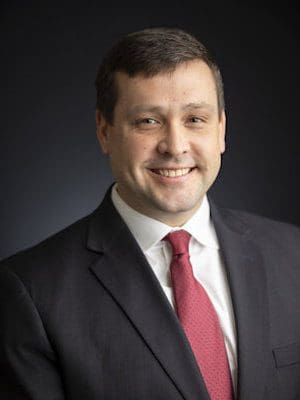In Arkansas, Martin Luther King Jr. Day is also a day to honor Robert E. Lee.
How one day can hold that ironic juxtaposition of figures together I’ll never know. I assume someone thought the day was big enough for both of them.
Both Lee and King cared passionately for their causes. However, one sought to bring about change through proclamation and the other sought to prevent change through force.
While the Civil War changed our country in innumerable ways, it did not, and could not, address the depths of the issues that remained until the civil rights movement a century later (and some would argue remain today).
Truly, the battlefields of the Civil War were not where the real battles took place. Instead, the war was the result of years of a dehumanizing ideology that seeped into the politics, economics, religion and social structures of the day.
This ideology shaped reality in those days. The powers and principalities had a grip on society in ways that people couldn’t imagine an alternate way of living.
Slavery didn’t exist simply because the wrong people were in control. Slavery existed because the wrong people were telling the stories – or they were telling the wrong stories.
This continued until a preacher became “a drum major for justice” and peacefully spoke truth to those powers and shattered the paradigms of his day.
King’s dreams did more to correct the injustices than all the battles of the Civil War.
His sermons pulled back the veil of “reality” and revealed the lies for what they were: naked affronts to the truth of God’s good news.
A Baptist preacher helped to accomplish what years of violence and bloodshed couldn’t do, and never will be able to do.
To be completely honest, there are days when I wince if someone finds out I’m a minister (or even worse, a preacher).
I feel this way because of the loaded and false expectations that inevitably arise.
The conversation either ends awkwardly at that point or it shifts toward some fake, “say-Jesus-in-every-sentence” sort of direction.
Part of my discomfort stems from the fact that ministry has come to be seen as a harmless vocation in some circles.
Preachers bless little children, give nice talks and say nice things when the elderly die.
Ministers speak to captive audiences, drink a lot of coffee and pray behind stained glass windows.
For many, ministry is an exercise in banality. Meanwhile, the real “movers and shakers” are those who get things done: doctors, lawyers, politicians, generals, financial planners and so on.
Occasionally, however, I’m reminded of the sheer potency of the spoken word. In many of the other creation stories in the ancient world, the deity creates the world through an act of violence.
In Genesis 1, God peacefully speaks reality into existence – bringing order to chaos with words rather than violence.
In Mark 1:38, Jesus is amid numerous acts of power when he declares, “Let us go somewhere else to the towns nearby, so that I may preach there also; for that is what I came for.”
This text suggests that preaching was primal for Jesus, as he sought to announce God’s ultimate reality amid all the other false realities.
In a way reminiscent of Genesis 1 and Mark 1, King stood high on that mountain, looked to the other side and pronounced a new reality into existence.
As a result, I intend to pay more attention to my words, guarding them as if they are as potent and explosive as cannonballs.
I’m going to pay more attention to dreams, which are nothing short of a down payment toward a new reality.
And I plan to take new pride in my vocation, in the hopes that all of us would-be preachers speak a new reality into existence Sunday after Sunday.
I’m even beginning to believe that those whom we allow to mold our notions of reality – the poets, musicians, writers and artists among us – carry greater weight than those who control us from positions of power.
Last week, Arkansas honored a general and a preacher. While the general captured the enemy and shaped the South, the preacher captured the imagination and shaped our consciousness.
Lee’s influence, while significant in his day, has come and gone. King’s voice continues to echo because he tapped into a power that outlives him.
To be sure, preaching is a strange, baffling and mysterious reality in which we participate.
But so is the Kingdom of God. And our words have a power that power knows not of.
Abraham Joshua Heschel once wrote, “To pray is to dream in league with God.” For King and Jesus, preaching was doing the exact same thing.
 Preston Clegg is the pastor of Second Baptist Church of Little Rock, Ark. A longer version of this article first appeared on his blog, The Bright Field, and is used with permission.
Preston Clegg is the pastor of Second Baptist Church of Little Rock, Ark. A longer version of this article first appeared on his blog, The Bright Field, and is used with permission.

